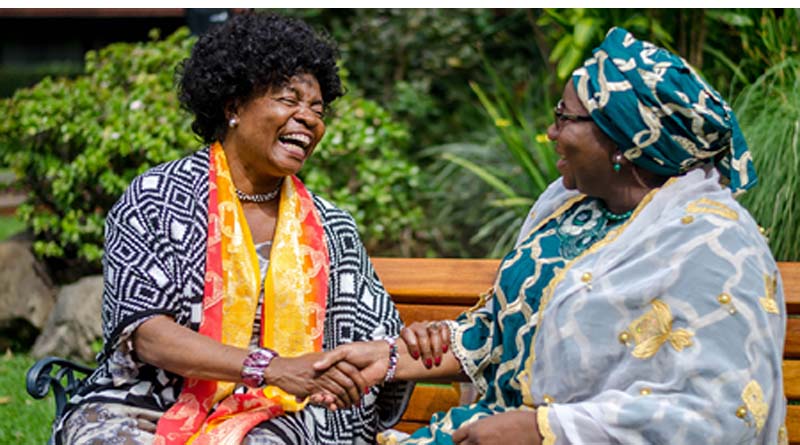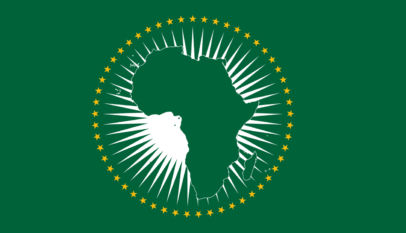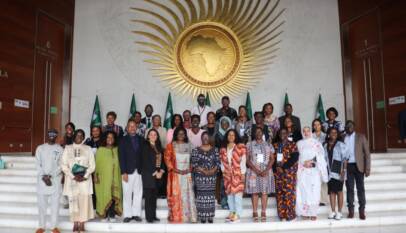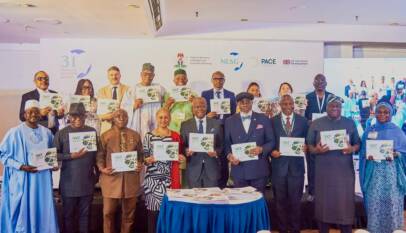INTERVIEW | “Winning Africa Food Prize was overwhelming, humbling” – Ruth Oniang’o
Ruth Oniang’o, chair of the Sasakawa Africa Association (SAA) and Sasakawa Fund for Extension Education (SAFE), was recently awarded the 2017 Africa Food Prize, the continent’s most prestigious prize in agricultural development in terms of numbers and scope, in recognition of her role as a leading voice on nutrition in Africa

You recently won the 2017 Africa Food Prize. How did you felt winning the prize?
It was really overwhelming and humbling as well, I have devoted most of my professional carrier to issues to do with food, hunger and nutrition so seeing African children looking emaciated, malnourished, poorly dressed and being paraded for fundraising by people who want to come and help us in Africa, really bothers me.
I don’t think that is right, I know how beautiful African children look. Really, the bottom-line now is how do we get our people out of poverty, how do we get them educated, how do we get to bring up healthy children that we will be proud of. So, for me the major issue has been bad governance, we just have bad leadership.
If I were a head of state I wouldn’t want to see my citizens looking malnourished. There is enough in this continent to go around; we get enough aid, we generate enough taxes and I think we just have a lot that is being held by a few people while the rest are actually poor. So, we could do a better job of feeding ourselves; we are a very rich continent in terms of what we can grow.
If you go round our Sasakawa project areas and see what our people are helping farmers achieve working with ministries of agriculture you wonder why we are still hungry in Africa. Yes, I know there are areas that are extremely dry and so may never see rains in 4 years. However, what we should be doing is moving food to such dry areas from those areas where there is abundance.
So, really it was humbling because I have been working around nutrition right from when I was young, I have advocated for it throughout my carrier, all the trips I make (other than private ones) are about food and nutrition. I talked about it when few people were talking about it and so I am happy that finally, nutrition is being recognized as part of the food system, not as a standalone field, instead as part of the food value chain and that’s what we do at Sasakawa.
We have been very uniquely applying the value chain approach in what we do; ultimately nutrition is quality and safe food that nourishes our body. I was extremely humbled, it is not about me, it is about all of us: it is about the African woman who feeds the family, it is about the students I have taught, it is about the people I have worked with who keep cheering me on, and who make it possible for me to do what I do.
You are one of the leading advocates for improved nutrition in Africa, one who successfully advocated for the setting up of nutrition departments in many African countries. What is the relationship between nutrition, health and sustainable development?
Big! Nutrition is a fairly new science compared to other sciences, there are those who even argue that it is not a science but it is a science; it is about what is available in food and how that make our bodies healthy. You need to be healthy not only to enjoy life personally, but also to be able to take care of your family as well as contribute to community and national development.
I have been saying that food which gives us nutrients is actually our first medicine, I have been saying that even before I knew of Hippocrates’ saying ‘Let food be thy medicine and medicine thy food.’ That is recognition that food is so critical to our livelihood, health and sustenance but food has to be good and safe because food can also poison and kill.
Like you said, your food should be your medicine and vice versa; what role do you think access to safe and nutritious food can play in combating diseases in Africa?
Our food in Africa can be our medicine, when you look at the natural things we take as medicine they are also found in food products, really the traditional food we eat in Africa including condiments prevent illnesses and infections. So, we need to understand that food can prevent illness, we haven’t utilized it fully, and we haven’t taken advantage of what Africa has to offer naturally to prevent illness.
Therefore, it is very important to understand the link between food and health, we shouldn’t just eat food to grow instead we should eat to prevent illnesses and be healthy; treat some of the conditions we are suffering from. Look at the so called lifestyle illnesses like diabetes, in most of our local languages we don’t have a name for diabetes, we call it a disease of sugar which means we never had it before.
We also started to take refined salt; Africans never ate refined salt before now which makes us so prone to hypertension, its killing us, causing heart attacks, and cardiac arrests. It’s really bad; this is not good for us at all! We now also have cancers which also we don’t have a name for in some of our vernaculars, its foreign and came into being as a result of how our lifestyles have changed.
But I am happy that as we become more educated and eat the Western food for a while we get tired of it and therefore return to our local food; people are realising that our local food is so much better. I don’t know why Africans moved away from their traditional food unlike the Asians (Indians, Japanese and Chinese) who might have changed in their dress styles and certain mannerisms but their foods remains their traditional ones.
Goal 2 of the UN’s Sustainable Development Goals (SDGs) is about ending hunger. Where do you hope to see Africa by 2030 in terms of ending hunger?
For me, these UN resolutions are to guide us, to catalyze actions, to make us think; they are not means to an end themselves, I feel the real action is in working with the real people and that is what we do at Sasakawa and doing so doesn’t necessarily mean saying we are going to end hunger by 25% or so. For me, it is one village at a time, like Sasakawa does, in that way we will move much faster and end hunger.
We also need to diversify and enrich our foods, make our body rich with nutrients such that we won’t need to eat much. This is because eating a diet made up of starch actually makes people always looking for more food. Therefore, we can do it but we need our governments to guide us, we need more organisations such as ours working with governments.
Sasakawa Africa Association (SAA) works with governments and Sasakawa Africa Fund for Extension Education (SAFE) works with governments and universities to improve agriculture. We have been doing a lot and making great impacts since 1986, when others have written off Africa. Our value chain approach is addressing nutrition, value addition and access to machineries. When you address the whole value chain you create jobs for the youth and wealth for families.










